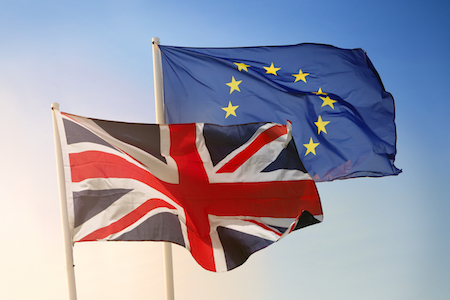
Written by Aimie Stone, Senior Economist at ADS
The meaningful vote on Theresa May’s withdrawal agreement has been scheduled for January 15, but MPs are set to vote it down increasing the chance of a ‘no-deal’ Brexit.
A no-deal scenario would see the UK operating under World Trade Organisation (WTO) terms only with the EU as no other agreements would be in place; something which only very few countries, such as Venezuela and Yemen currently do. Most countries have some form of trade agreement or preferential arrangements with the EU at least on data exchange, sharing of standards and cooperation on customs procedures, none of which the UK would have under a no-deal scenario.
There is talk by some, that a ‘managed’ no-deal is preferable to the negotiated deal; and that through a series of contingency measures along-side very basic WTO terms, the government could mitigate against the worst of the impacts of no-deal. However, the reality is that the WTO can offer very little to mitigate the problems of a ‘managed’ no-deal which would see the EU treat the UK as a third country from March 30, 2019.
While the UK government has a communication pack to support businesses in the event of a no-deal scenario, the European Commission (EC) has implemented a no-deal contingency action plan, designed not to replicate the benefits of EU membership but to support member states and ensure status quo in a few sectors and only until the end of 2019, meaning there would still be significant disruption for UK businesses more widely.
Such a ‘managed’ no-deal is not enough to support UK businesses, and it leaves a considerable number of priority issues to be addressed.
The EU has always insisted on the need of a Withdrawal Agreement as a precursor to future talks; a ‘managed’ no deal fails to provide this. It also fails to address the priorities identified by member states: the rights of EU citizens, the Brexit bill and the Irish border. Under a ‘managed no-deal’ there are major challenges:
- the UK is left without a set of recognised regulatory standards with the EU and sub sequentially many UK issued certificates, licenses, registrations and authorisations would no longer be valid in the EU and EEA.
- there will be new costs for businesses who trade across the UK-EU border as goods become subject to customs declarations, checks, controls, and certain duties and taxes with business expected to pick up the cost. Even in a ‘managed no-deal’ this would cause new delays at borders due to the checking of paperwork.
- there is no automatic access to EU security information or systems and no formal arrangement for collaboration on defence activities, including participation in R&D and industrial development programmes.
EC contingency plans do outline an intention to put in place emergency unilateral measures on air services and aviation safety, but a ‘managed’ no-deal is reliant on the EU extending a sense of extreme goodwill to the UK and currently has limited legal certainty. The EU extending this goodwill is made more doubtful as they have made it clear that there will be no additional ‘mini-deals’ or ‘side-deals’ with the UK in the event of a no-deal.
The UK still needs, before 29 March, to develop replacement IT infrastructure and data sharing systems as well as negotiate agreements with non-EU countries to replace existing ones. Even if all these issues are addressed, a no-deal outcome managed or not, is unacceptable for members and UK businesses as it is simply not enough to avoid significant disruption.





